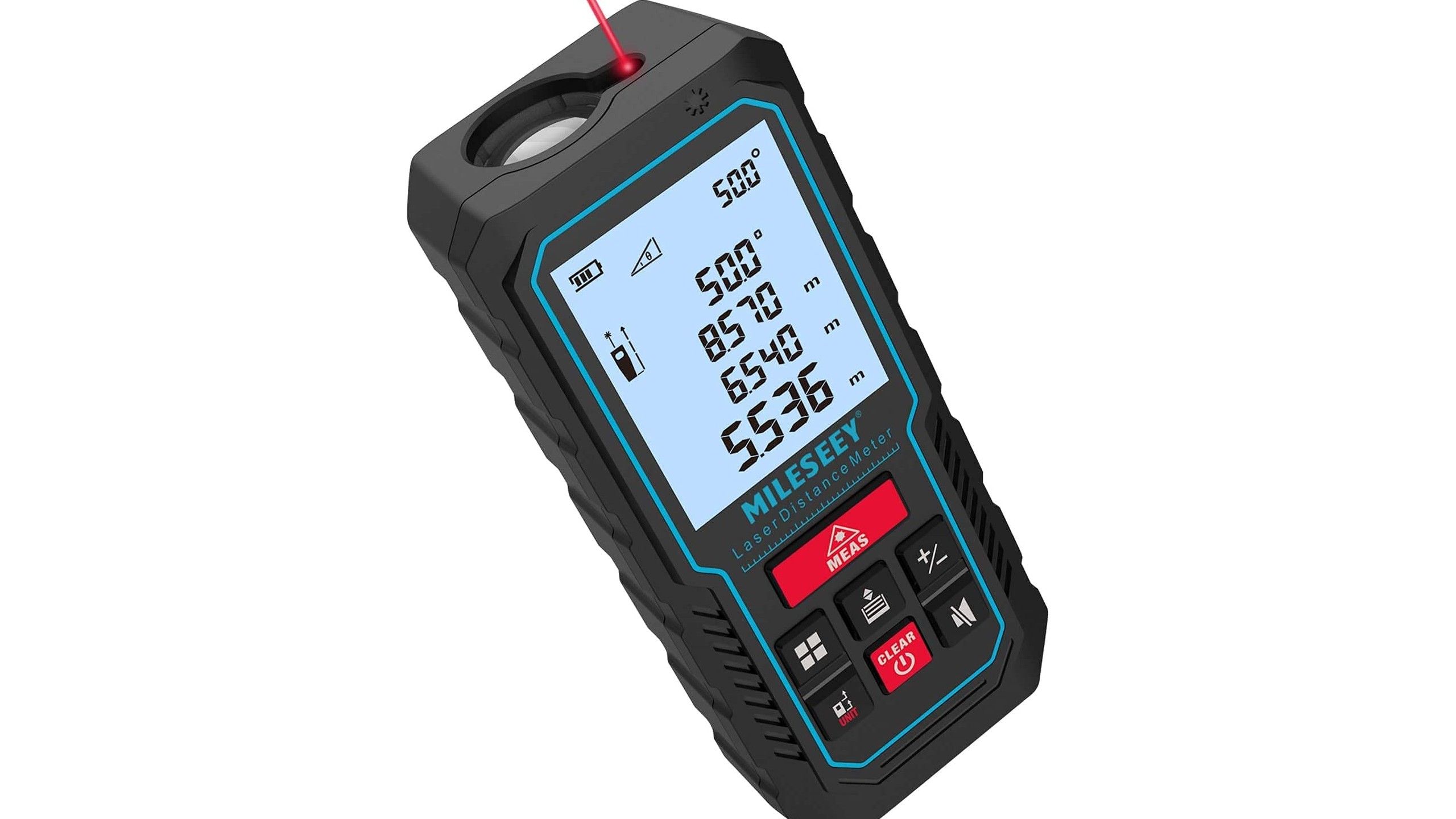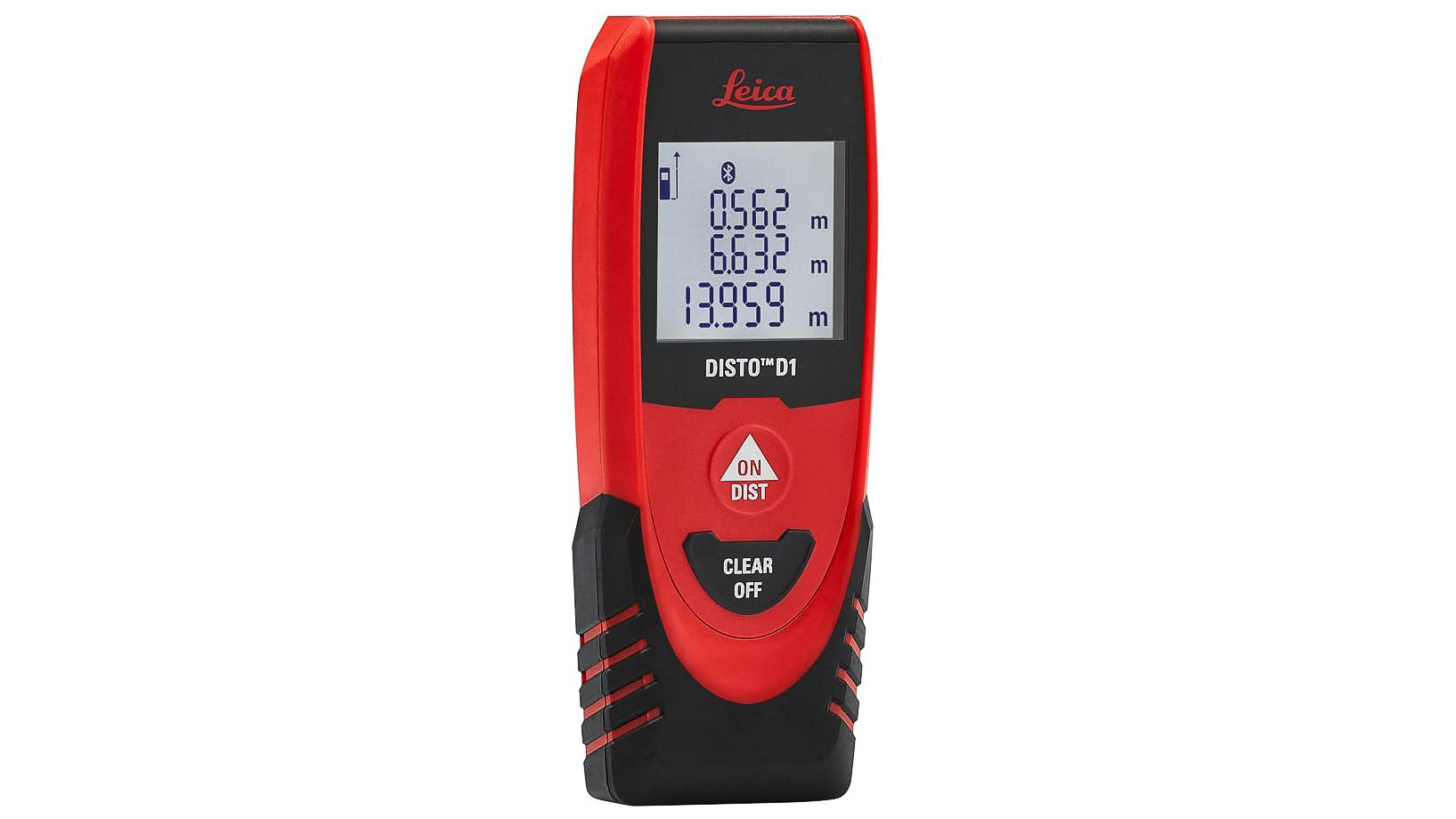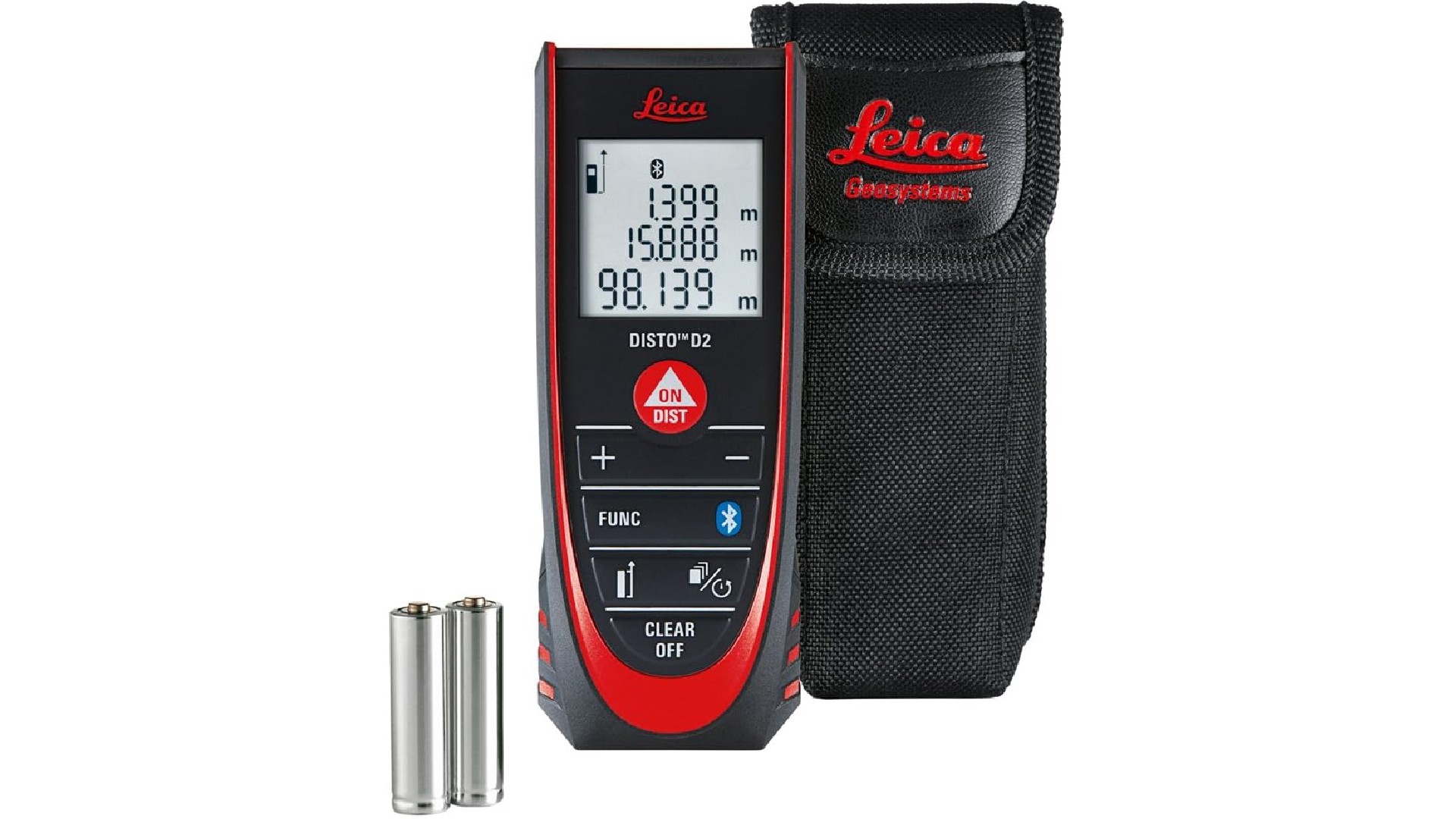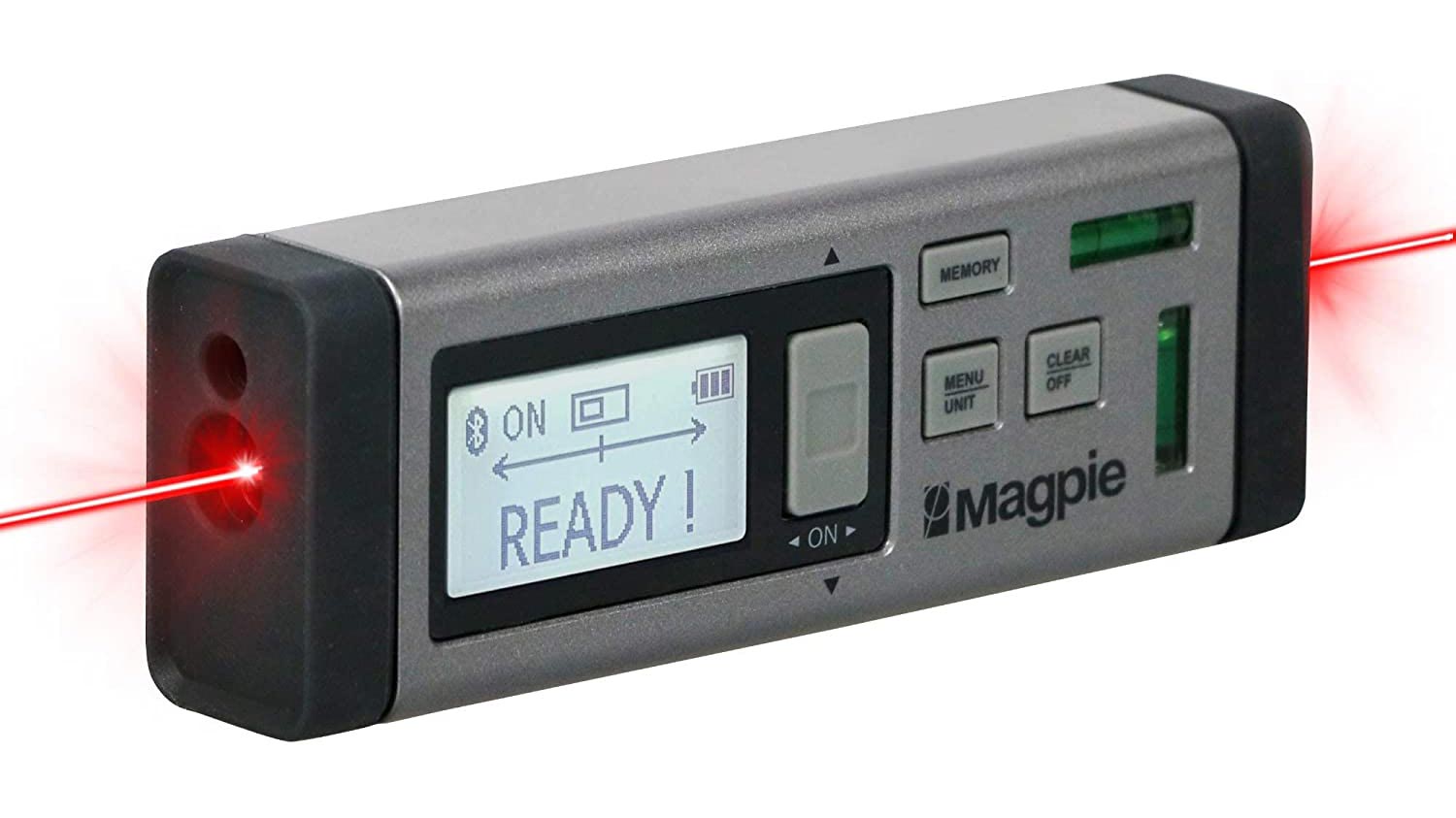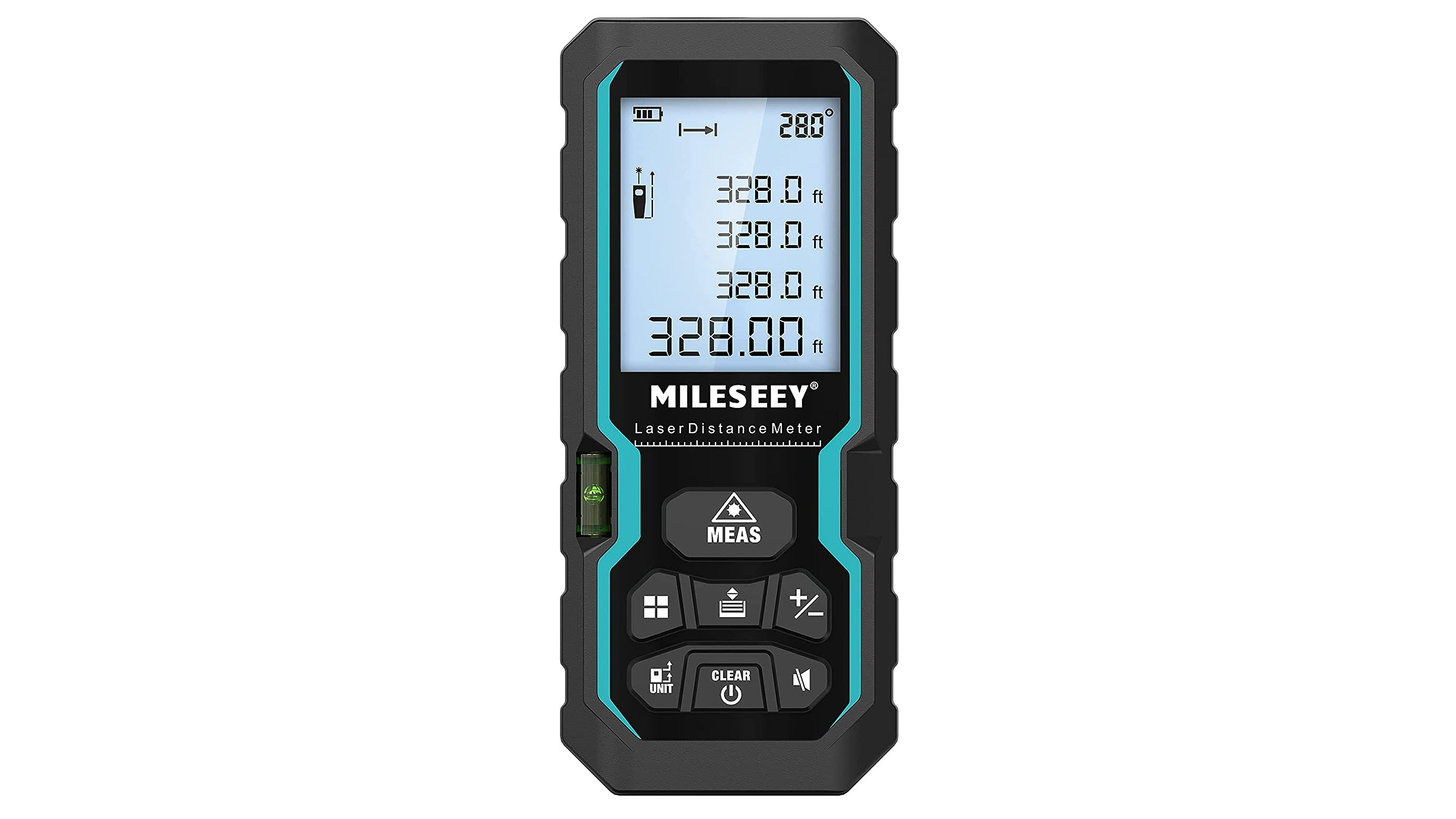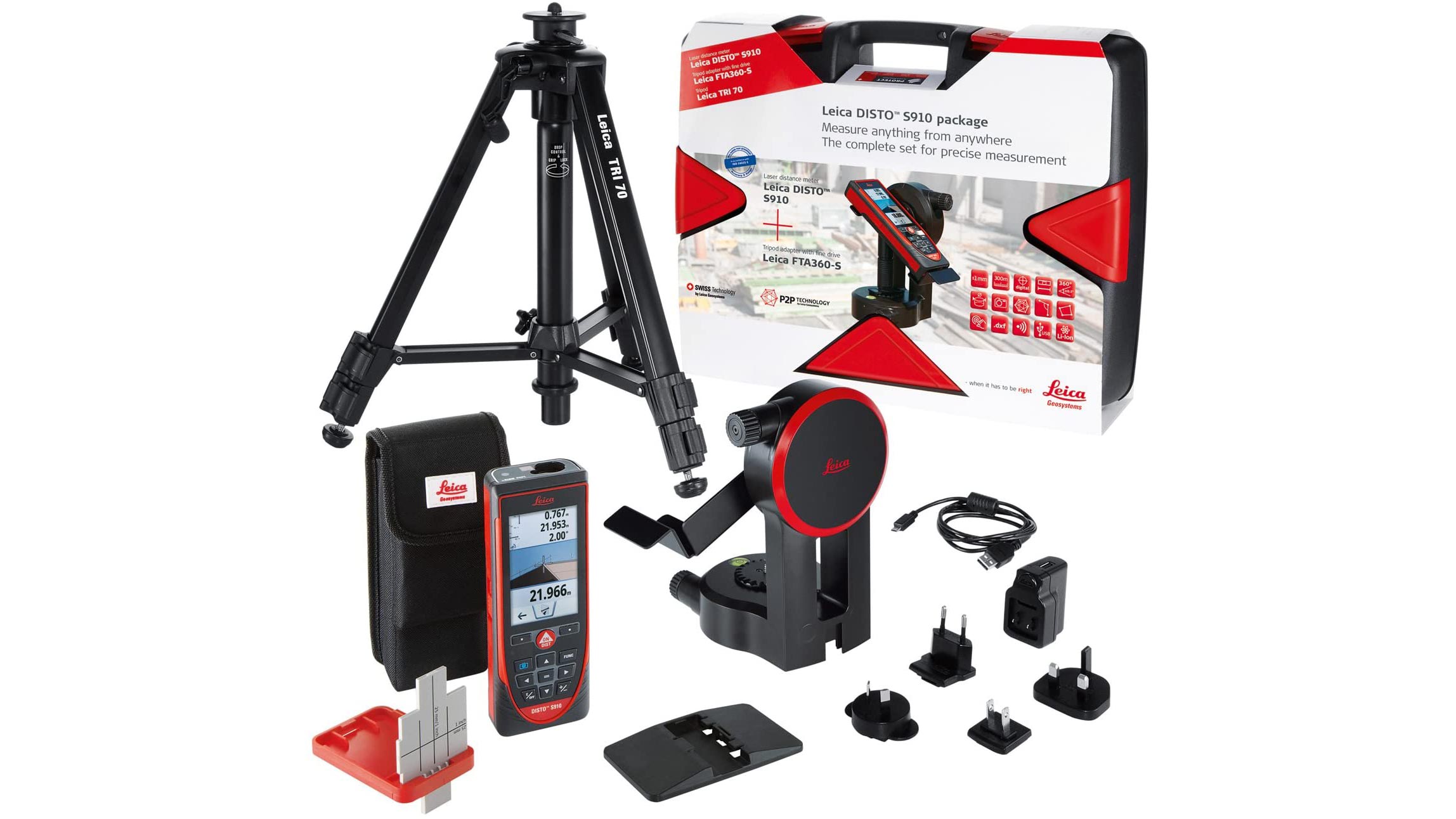The best laser measure: precision tools for calculating distances accurately
Get precise measurements, store your readings and get help with calculations, by using the best laser measure
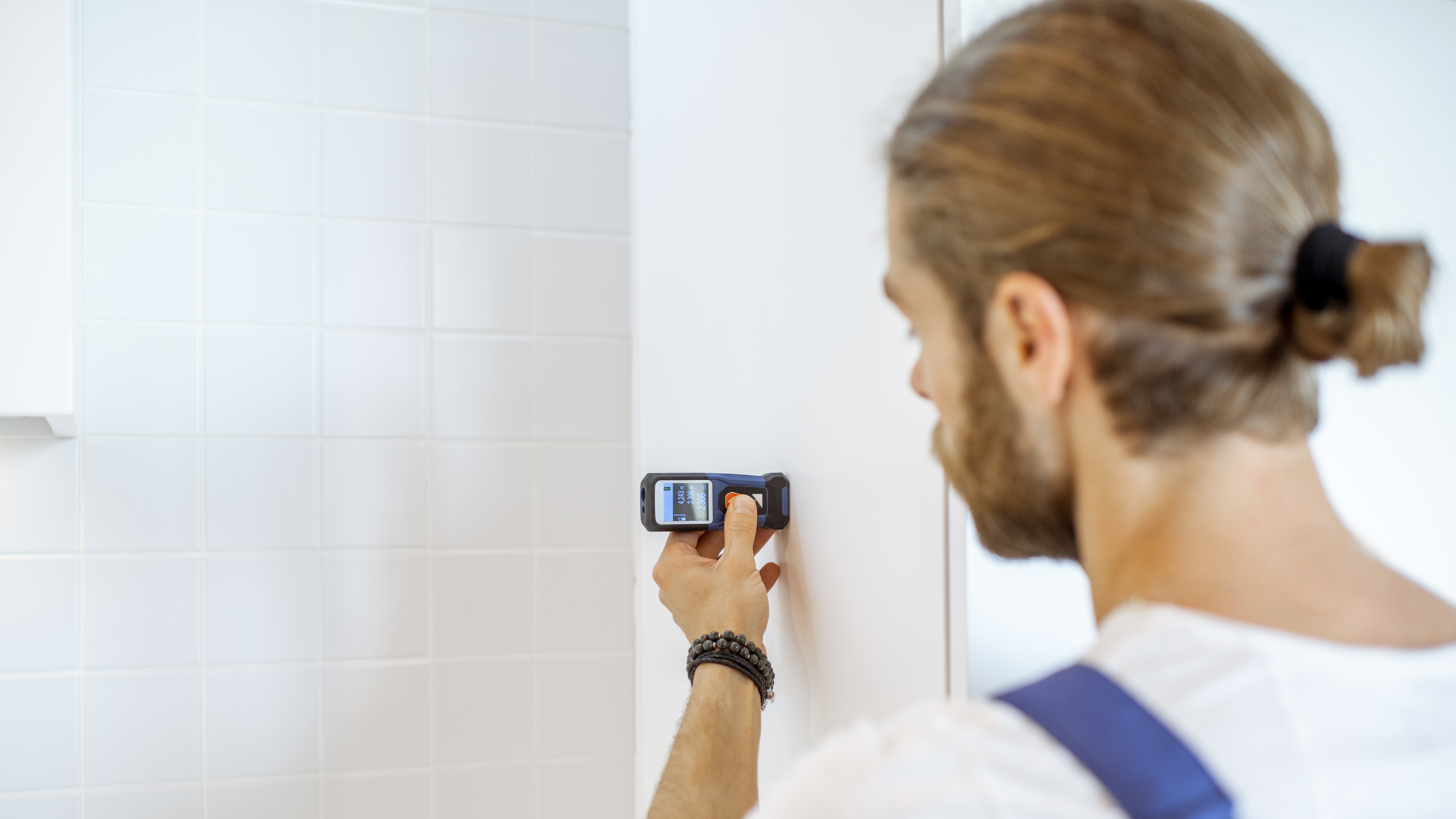
Our top picks↴
1. Best for DIY: Mileseey 70m
2. Best for carpentry: Leica D1
3. Best features: Leica Distro D2
4. Best bi-lateral: Magpie VH-80
5. Best for factories: Mileseey S6
6. Best for AutoCad: Disto S910
7. Best with camera: GLM400CL
8. Best for surveyors: Disto E7500i
9. Best for trees: Forestry Pro II
10. Best compact: Leica D110
FAQs
How to choose
How we test
The best laser measures are a real step up from old-school tape measures, offering much more accurate results. They're usually quicker and much less fiddly to use, especially when you're in a cluttered room with lots of things in the way. And with advanced models, you can even get help with your calculations and store a series of readings to refer back to later. Some also come with an inclinometer, which measures the angle of an object.
See also Best laser levels
For these reasons, the best laser measures (also known as 'laser distance measurers', 'laser distance meters', or 'laser tape measures') have become essential tools for professionals in construction, surveying, IT networking, and energy fitting. They're also great if you're just doing DIY projects at home.
Below, we've carefully curated a selection of the best laser measures available today, covering a variety of use cases and budgets. We explain what each has to offer, and how to choose between them.

Tom May has more than 20 years of experience in renovating properties the length and breadth of England (plus bits of Wales). He's allergic to hard work and long hours, so he's always keen to use devices that can save him time and effort when it comes to the boring and mundane side of DIY.
Our top picks
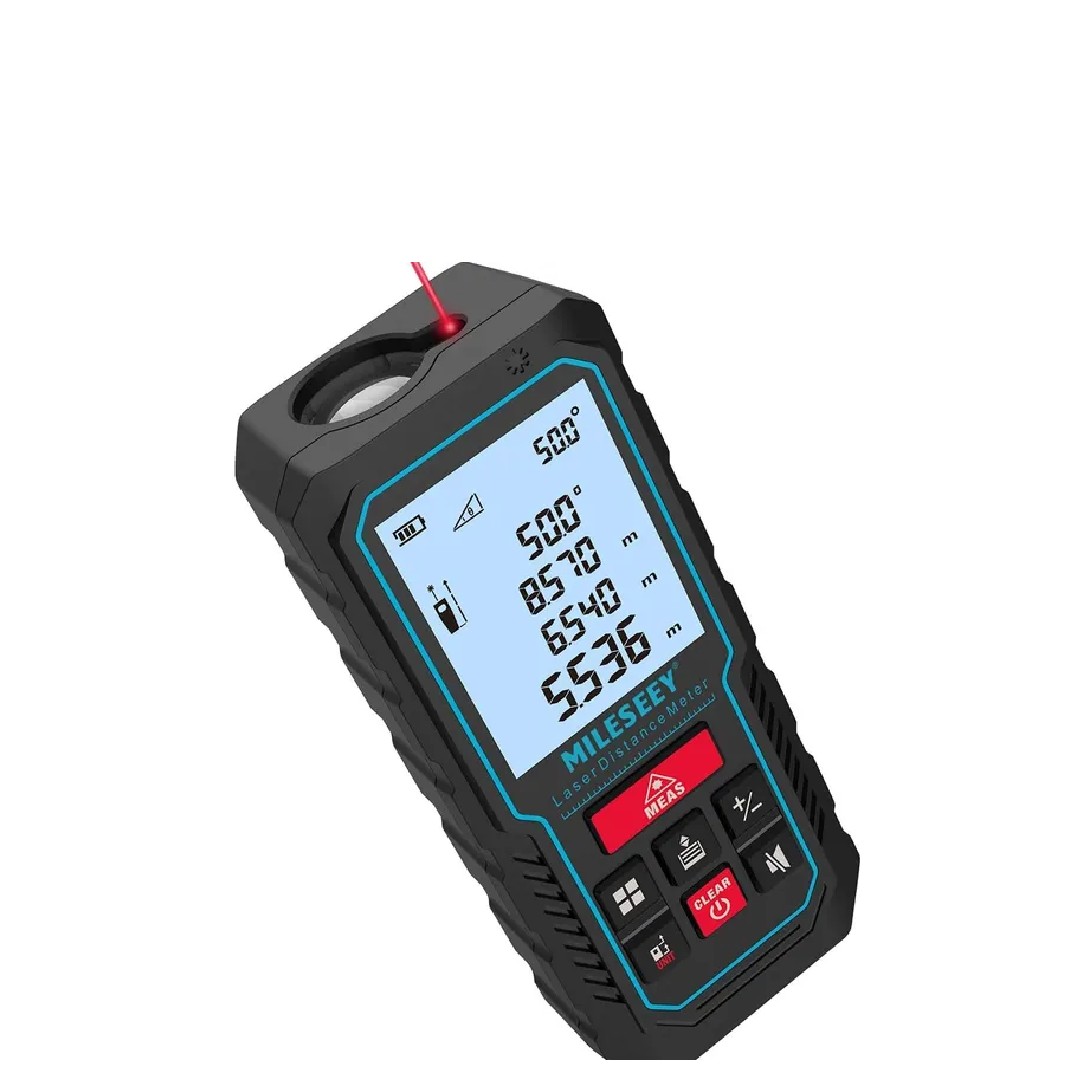
Best laser measure for DIY
If you just want a laser measure for a bit of home DIY, this one is quite affordable. Plus it does a good job at measuring, with a range of 16cm and 70 feet, and an accuracy of ±0.2mm/±1/16 inch.
Read more
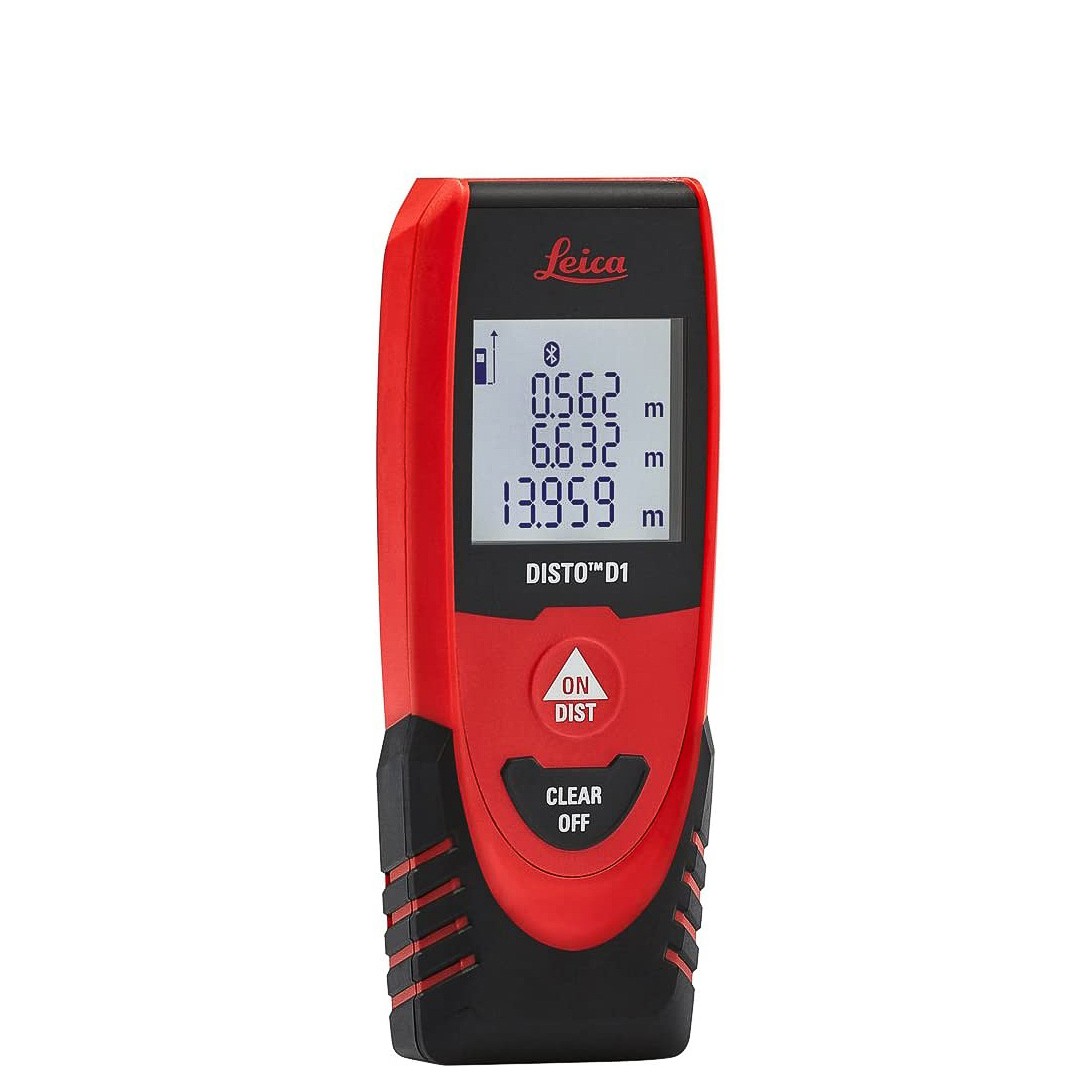
Best laser measure for carpentry
The D1 is elegant and simple to use, with a light-touch keypad and no more buttons than you need. That makes this a great tool for measuring spaces and lengths of wood. It comes with an app, too.
Read more
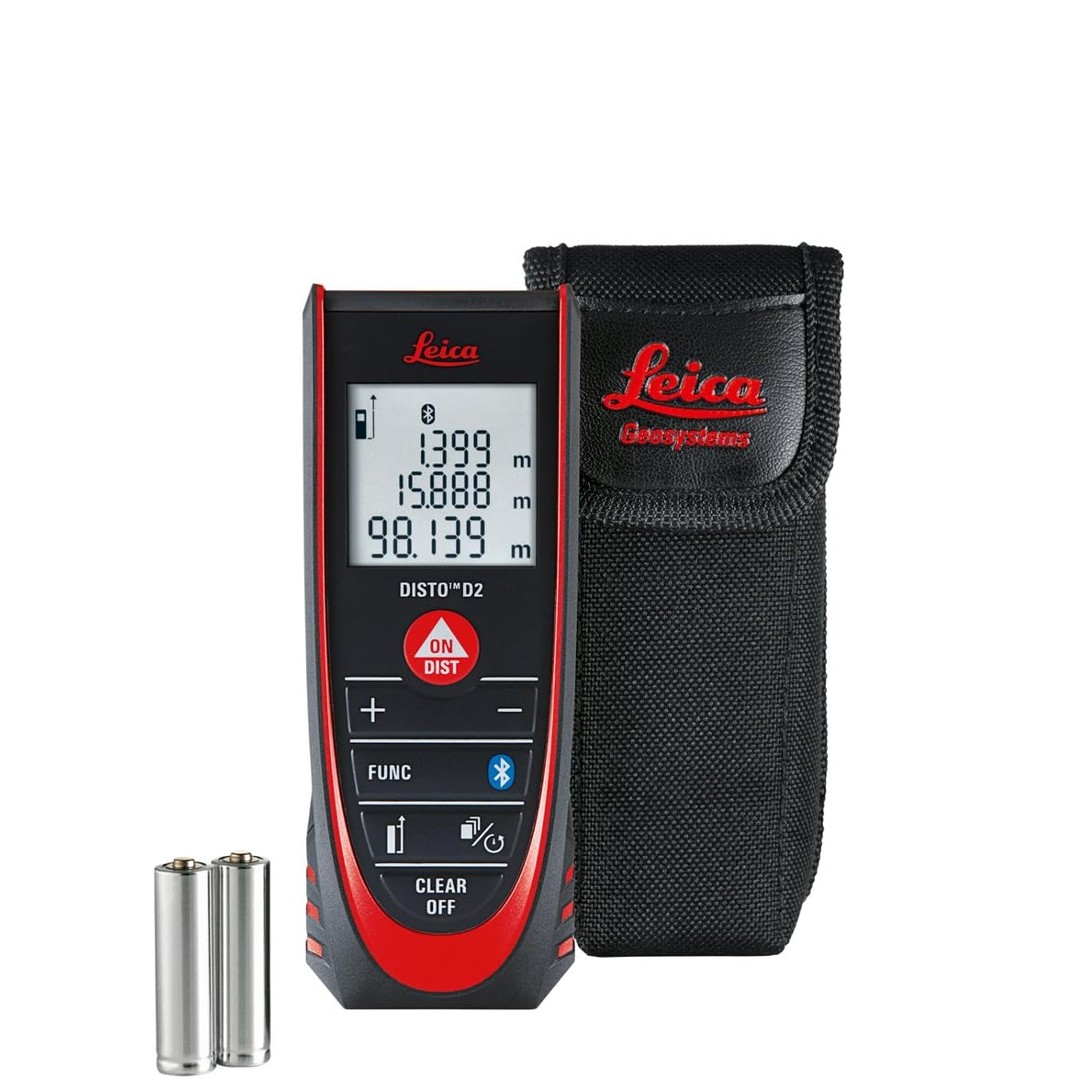
Best laser measure for features
Want an all-singing, all-dancing laser measure? While the Leica Disto D2 Laser Distance Meter is pretty similar to the D1, it boasts a more generous range of up to 100m, and an absolute ton of features.
Read more
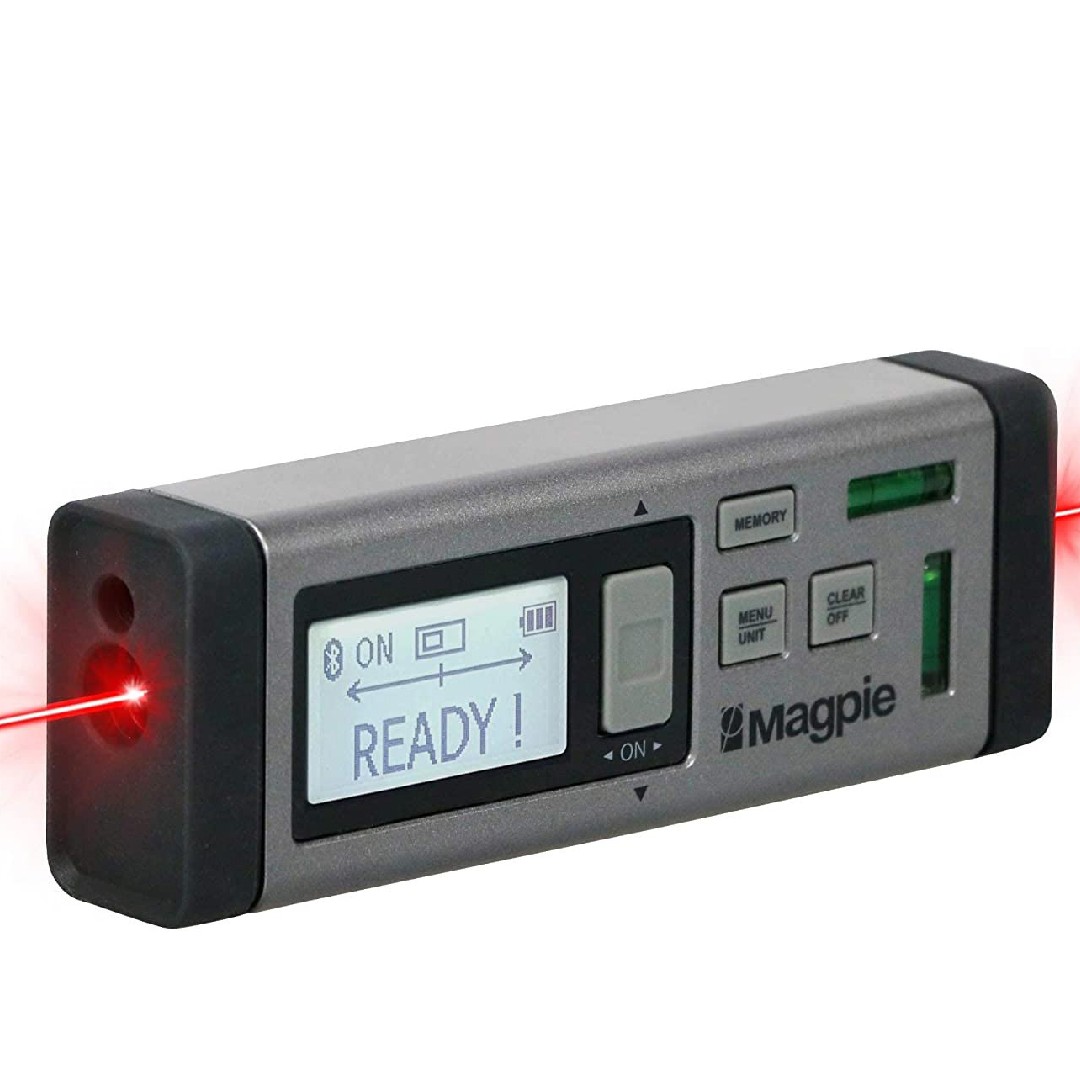
Best bi-lateral laser measure
This laser measure has not one but two lasers. This means it can be pointed in three directions from the center of a room to get all three measurements needed for an estimate of the volume.
Read more
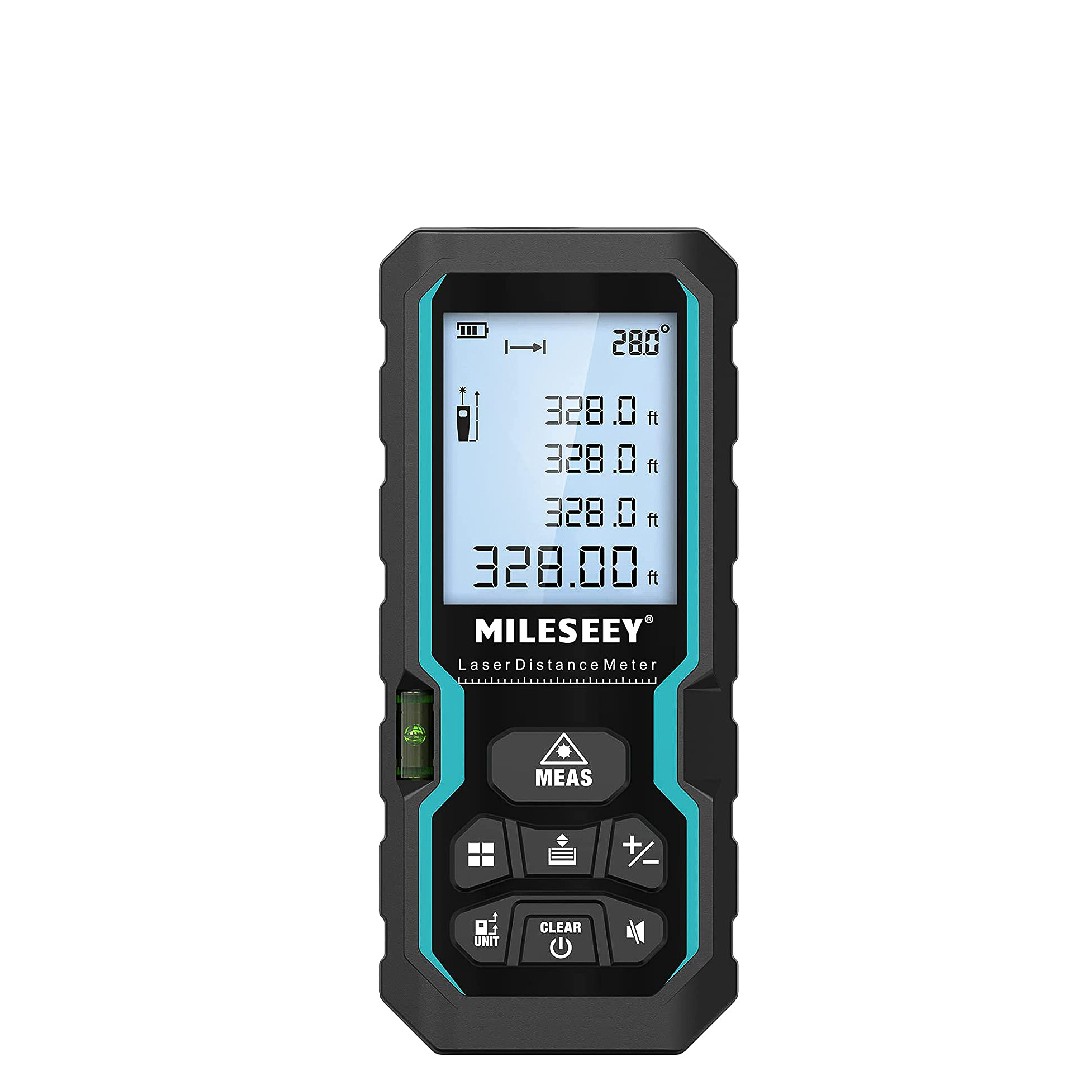
Best for factories
The Mileseey S6 boasts an impressive measuring range of 100m, making it a good choice for all sorts of large spaces. It offers area, distance, volume and Pythagorean measurements.
Read more
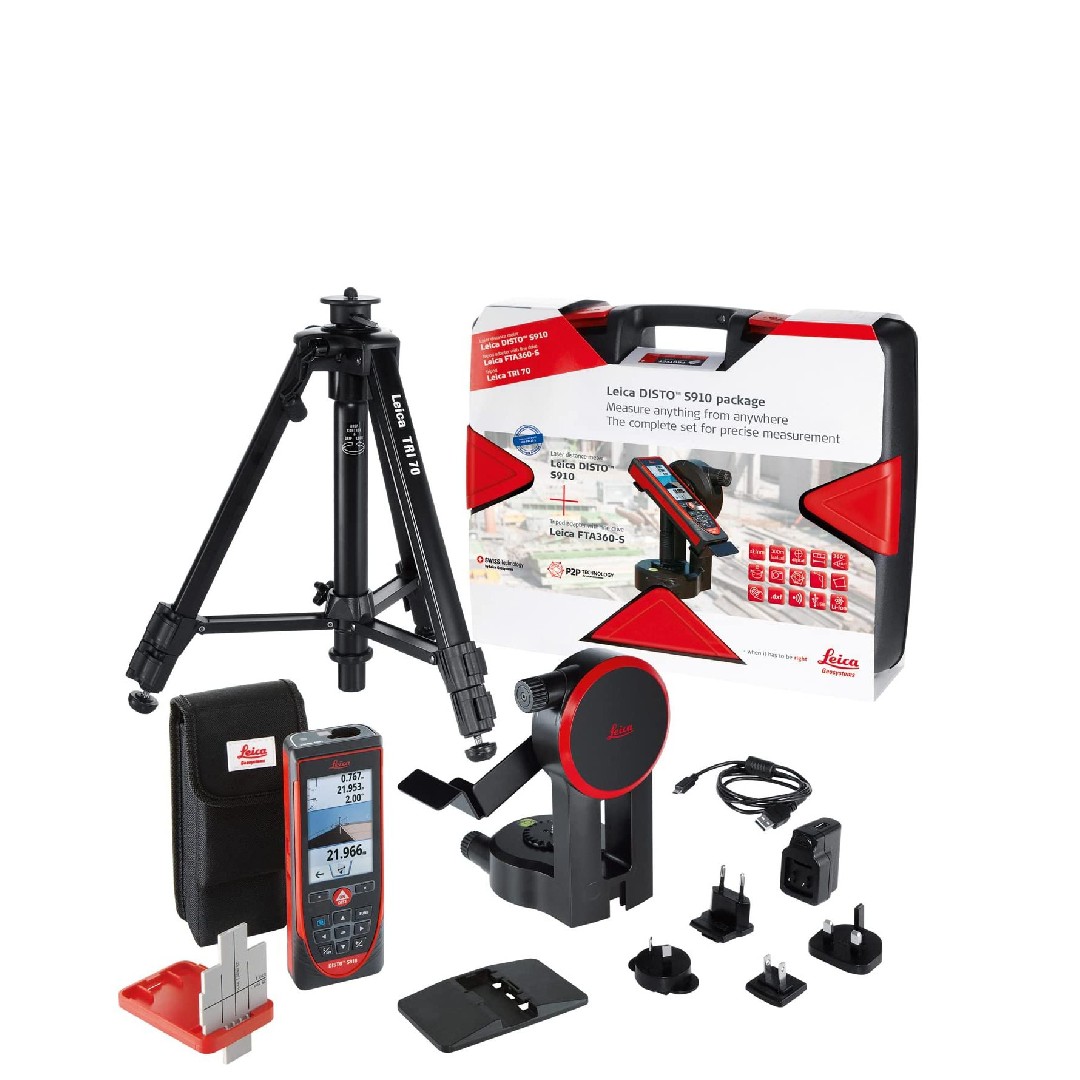
Best for AutoCAD
If you use AutoCAD, then exporting the data to this software as DXF is easy with this laser measure, thanks to WiFi or Bluetooth. Alternatively you can go to the Android/iOS Disto App.
Read more
Load more options
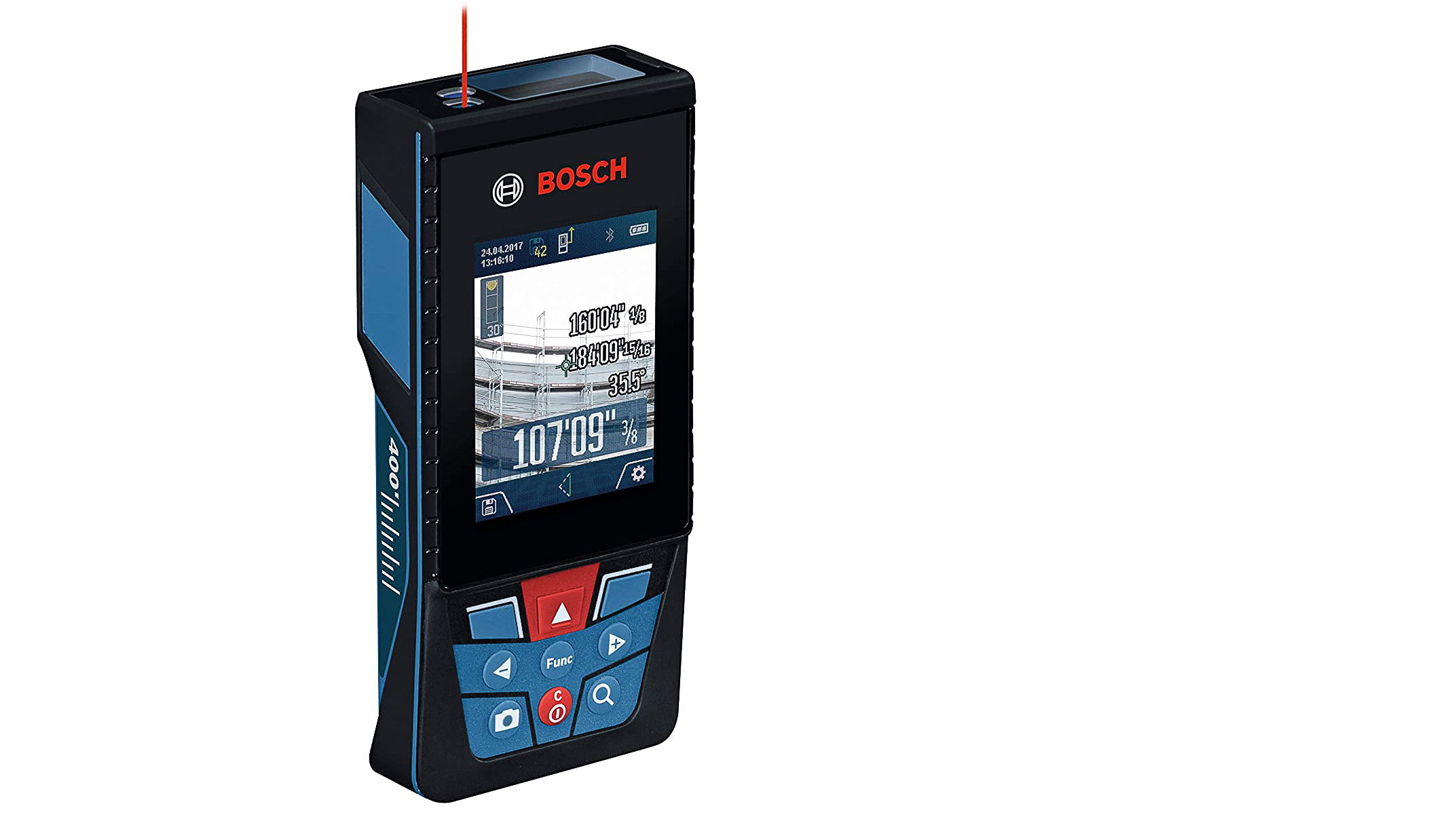
Best with a camera
The Bosch GLM400CL Blaze has a measuring range of 120m and comes with a camera. This helps identify the spot the laser is pointing to more easily, and it records an image with the measurement.
Read more
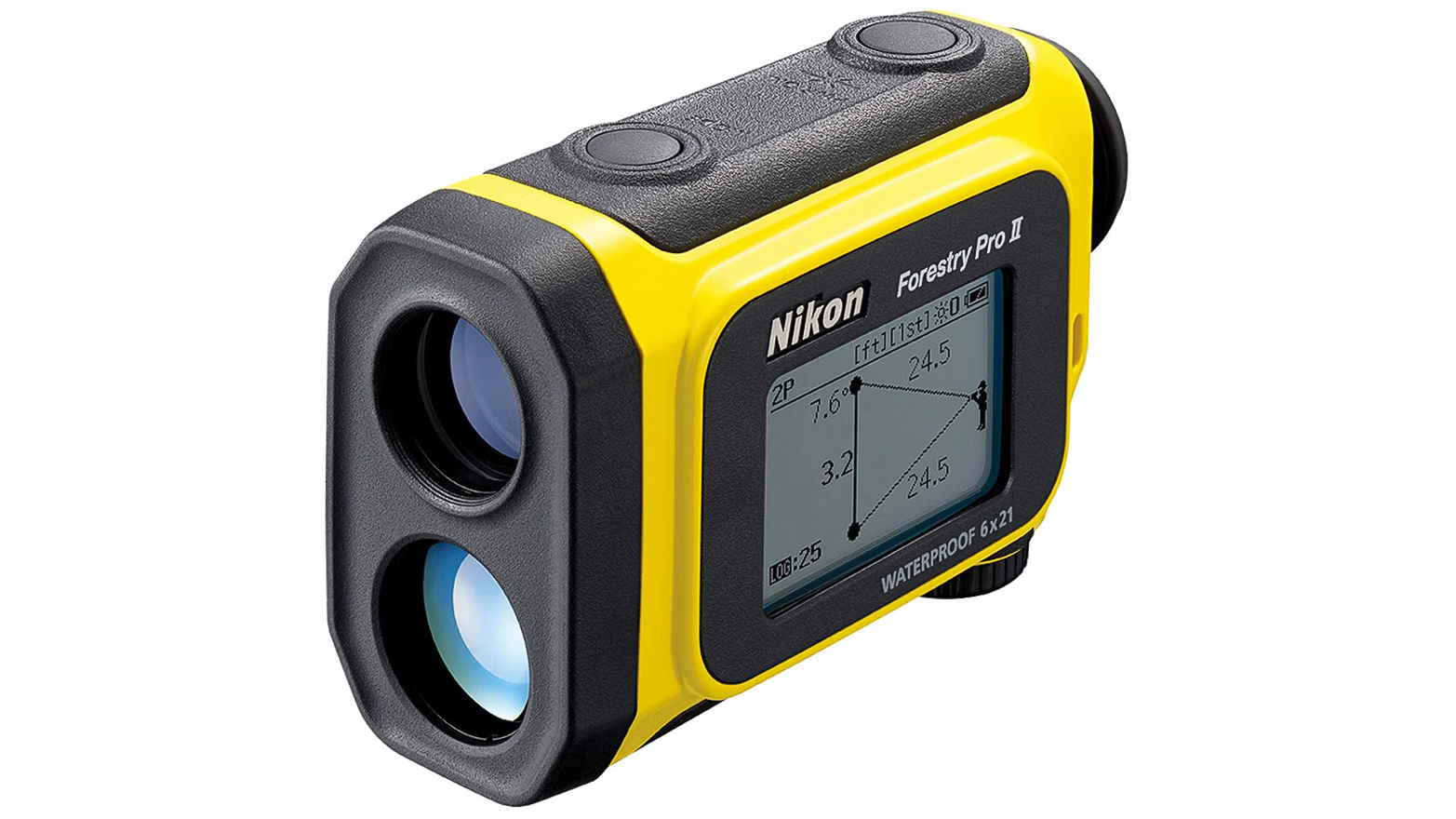
Best for trees
Nikon has turned its expertise in golf rangefinders it to making a laser measure that is optimized for calculating the height of trees.
Read more
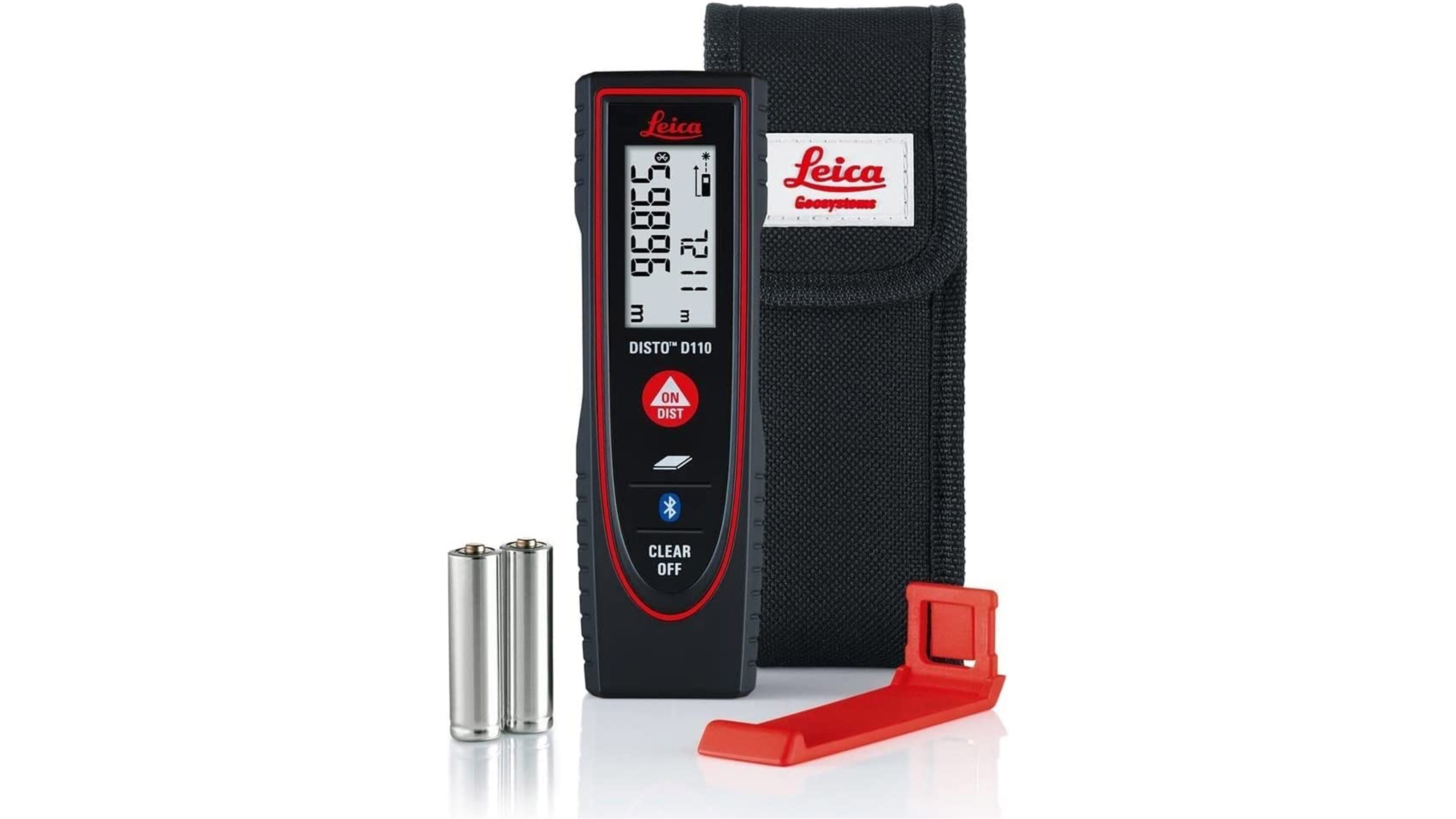
Best compact
The D110 is the most compact in the Leica range. With a measurement range of 60m, it allows you to transmit via Bluetooth and create floor plans and sketches with the Leica Disto app.
Read more
Best laser measures
Why you can trust Digital Camera World
The best laser measure for DIY
1. Mileseey 70m / 229ft Digital Laser Tape Measure
Specifications
Reasons to buy
Reasons to avoid
The best laser measures can get quite expensive, but if you just want one for a bit of home DIY, here's our recommendation. This device from Mileseey is quite affordable, and does a good job at measuring, with an accuracy of ±0.2mm/±1/16 inch. With a measuring range of between 16cm and 70 feet, it's dust- and splash-proof to IP54 standards, and offers some useful extra functions.
For example, you can just measure the hypotenuse, and the horizontal distance and vertical height are calculated automatically. Or you can measure only two hypotenuses, and the vertical height is calculated automatically.
This device can store up to 20 measurements at one time, and takes two AAA batteries. More expensive models promise more, but for home decoration this is probably all you need.
The best laser measure for carpentry
2. Leica D1
Specifications
Reasons to buy
Reasons to avoid
The maxim in carpentry goes 'measure twice, cut once', and the best laser measure mean you'll get the super-high degree of accuracy you need.
For these purposes, we like the D1. It's elegant and simple to use, with a light-touch keypad and no more buttons than you need. That makes this a great tool for measuring spaces and single lengths of wood, although those working on larger spaces or outdoors might look for a more powerful laser.
It has some advanced features too. Most notably, it's compatible with Leica’s free Disto Plan app which – via Bluetooth and any Apple or Android phone – extends the two-button operation into a full room measurement tool. You can use this to integrate your measurements into project images or job-site sketches.
The best laser measure for in-built features
3. Leica Distro D2
Specifications
Reasons to buy
Reasons to avoid
Want an all-singing, all-dancing laser measure that's packed with useful features? Then we recommend the Leica Disto D2 Laser Distance Meter. While it's pretty similar to the D1 above, it boasts a more generous range of up to 100m, and an absolute ton of features.
A standout feature is the multifunctional flip-out endpiece that enables measuring from edges, corners or slots while automatically detecting its position to prevent errors. The device utilizes X-Range Power Technology to ensure fast and reliable long-range measurements up to 100m with a typical accuracy of ±1.5mm and 0.1mm resolution on the illuminated display.
Bluetooth Smart (4.0) allows seamless data transfer to smartphone and tablet apps like Leica's DISTO Plan app for iOS/Android for creating drawings from measurements. It offers distance, area, volume and indirect Pythagoras measurement modes along with tracking, painter functions, a timer, and the ability to add/subtract measurements.
The D2 can store the last 10 measurement results in its memory, and other useful features include a beeping speaker, stake-out mode, dust/splash protection (IP54 rated), and up to 10,000 measurements or 20 hours of use from 2 AAA batteries.
The best bi-lateral laser measure
4. Magpie VH-80
Specifications
Reasons to buy
Reasons to avoid
Here is a different take on the laser measure, which takes the sum distance (plus its own length) from two lasers. This means it can be pointed in three directions from the centre of a room to get all three measurements needed for an estimate of the volume without needing to take a step.
The slight sacrifice is that the device has twice the margin of error that a single laser measure would have. But for contract estimators this is unlikely to be a huge issue. On the plus side, the device has a partner app for both iOS and Android, which can not only assist with area calculations for materials but exports data and sketches in JPEG, PDF & XLS.
The best laser measure for factories
5. Mileseey S6
Specifications
Reasons to buy
Reasons to avoid
The Mileseey S6 is a versatile electronic measure with a long measuring range of 100m, making it more useful in factories and warehouses as well as large apartments and other big spaces. It also offers area, distance, volume and Pythagorean measurements.
It's reasonably robust, with IP54 ingression protection. The rubber body makes for a good grip and drops aren’t much of a concern. A bubble-level is included, as well as electronic inclinometer for those just wanting to quickly check a level, or passing the tool to their older workmate and wanting to side-step a “good old days” lecture.
The best laser measure for AutoCAD
6. Leica Disto S910
Specifications
Reasons to buy
Reasons to avoid
The Leica Disto S910 shows how much more can be achieved with this technology than simple straight-line measurements. Yes, it's expensive. But there are many for whom it will soon earn the investment back.
The ability to take a series of measurements from a single tripod position using the SmartBase is made easier by the built-in camera’s 4x zoom, used to accurate locate points for precise targeting. Exporting the data as DXF to AutoCAD files is easy thanks to WiFi or Bluetooth, or you can go to the Android/iOS Disto App. There are also an amazing number of complicated area and volume calculation features built in, so you can deliver a verdict on site.
The best laser measure with camera
7. Bosch GLM400CL Blaze
Specifications
Reasons to buy
Reasons to avoid
The Bosch GLM400CL Blaze is capable of taking a long measurement on a fairly bright day, but what really sets it apart is the technology it has to back that up. There are a good range of measurements, including (by virtue of the inclinometer) Pythagorean areas, but the icing on the cake is the camera. The camera has two jobs. It helps identify the spot the laser is pointing to more easily, and it records an image with the measurement.
The best laser measure for trees
8. Nikon Forestry Pro II
Specifications
Reasons to buy
Reasons to avoid
If you need to calculate the height of trees from a distance, the Forestry Pro makes the task a lot easier. It works using an optical monocular finder, and in that respect, has a lot in common with a more professional version of a golfer's laser rangefinder (for comparison, the eye relief is 18mm).
With a magnification of 6x, professionals will find their targets reasonably easily, but there's also the Target Priority Mode to helps find objects in sequence if needed. The memory of 250 measurements lets you cover a lot of ground without getting the note pad out, too, and despite the distance measurements take about 0.3 seconds.
The best compact laser measure
9. Leica D110
Specifications
Reasons to buy
Reasons to avoid
Many photographers find themselves lusting after the Leica brand, and the firm have plenty of options in the laser-measure space. This is their most compact: so small it has a removable belt clip, which has a noticeable impact on the size!
It's a good-looking design with IP54 splash proof and a backlit screen. It is relatively pricey, but the screen includes previous and current measurements. Not only that, but you can transmit measurements to your phone via Bluetooth and create floor plans and sketches with the Leica Disto app. While the accuracy is higher than many, the design deliberately doesn’t include features like area calculations, leaving these to the app.
FAQs
What is a laser measure?
A laser measure, aka laser distance meter, is a handheld device that uses a laser beam to measure distance. It works by sending out a laser beam and measuring the time it takes for the beam to reflect back. This allows you to take measurements more accurately than with a traditional tape measure. It also makes it easier to measure in rooms where there are obstacles to navigate.
How do you use a laser measure?
You use a laser measure by pointing the laser at the target and press a button. The distance will be displayed on the screen. Some laser measures also have extra features, such as a a digital level, calculator and the ability to store multiple measurements.
What are the different types of laser measure?
There are two main types of laser measures: indoor and outdoor. Indoor laser measures are designed to be used in well-lit environments, while outdoor laser measures are designed to be used in bright sunlight.
What does an inclinometer do in a laser measure?
An inclinometer is a device available in some laser measures that measures the angle of an object. This can be useful for a variety of tasks, such as leveling furniture or appliance, measuring the slope of a roof or drive, aligning a picture frame or shelf or checking the level of a foundation
Inclinometers in laser measures typically work by using a pendulum or accelerometer to measure the angle. To use it, simply place the device on the surface you want to measure and press the inclinometer button. The angle will be displayed on the screen.
How to choose a laser measure
When deciding which laser measure to buy, first consider the amount of range you want to cover. This can vary hugely, so if you're only going to be measuring small rooms you won't need as much distance as if you're working in a large warehouse.
Also think about accuracy. Some types of work will require accuracy to fractions of a millimetre, whereas most domestic DIY tasks you can afford to be a little more relaxed. Finally, think about features. Advanced models offer tools such as area and volume calculations, Pythagoras calculations, and even app connectivity. These bells and whistles will cost more, though, so consider whether you need them.
How we test laser measures
We put laser measures to the test in real-world situations, carrying out a broad kind of measuring tasks and seeing how they match up to each other. We test them out in a variety of different spaces, from compact to cavernous, and check whether different surfaces pose any problems to each device. We focus on how user-friendly they are, whether their claims to accuracy stack up in practice, and how compact and portable (or otherwise) they are.
Read more:
The best laser rangefinders
The best thermal imaging cameras
Best thermal binoculars
The best borescopes and inspection cameras
The best infrared thermometers
The best night vision goggles
The best handheld light meters
The best camera deals, reviews, product advice, and unmissable photography news, direct to your inbox!
Tom May is a freelance writer and editor specializing in art, photography, design and travel. He has been editor of Professional Photography magazine, associate editor at Creative Bloq, and deputy editor at net magazine. He has also worked for a wide range of mainstream titles including The Sun, Radio Times, NME, T3, Heat, Company and Bella.
- Adam JuniperManaging Editor
